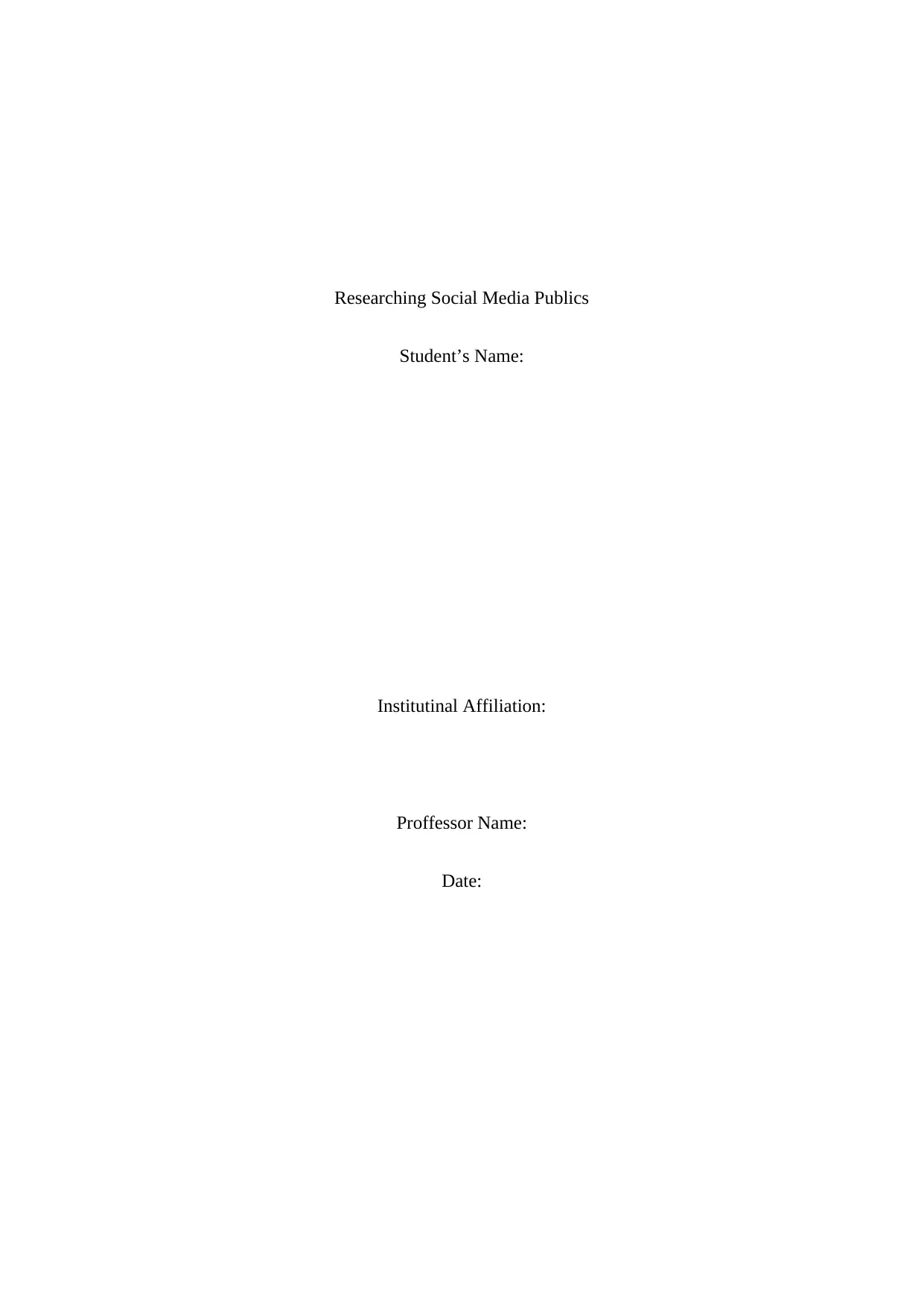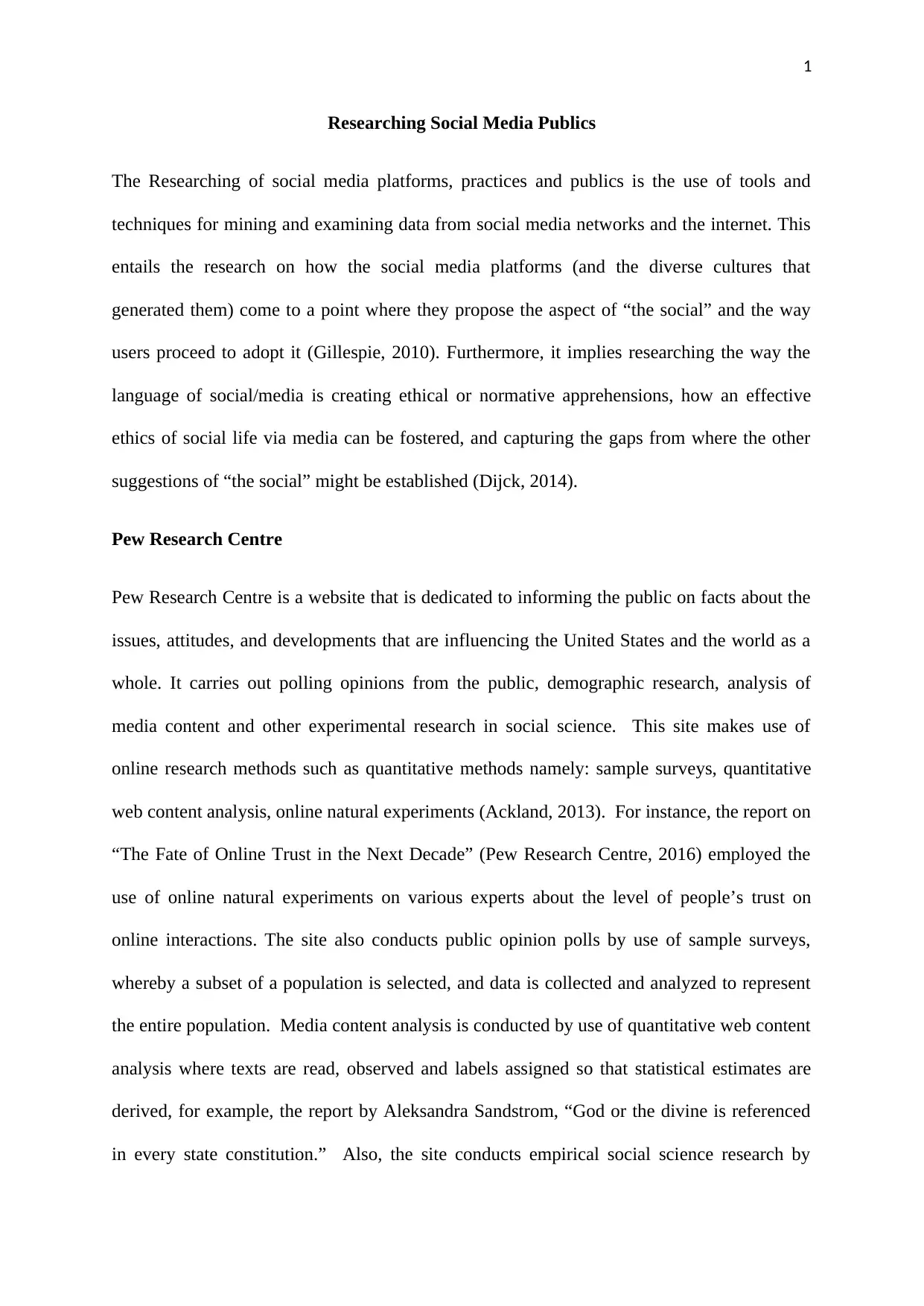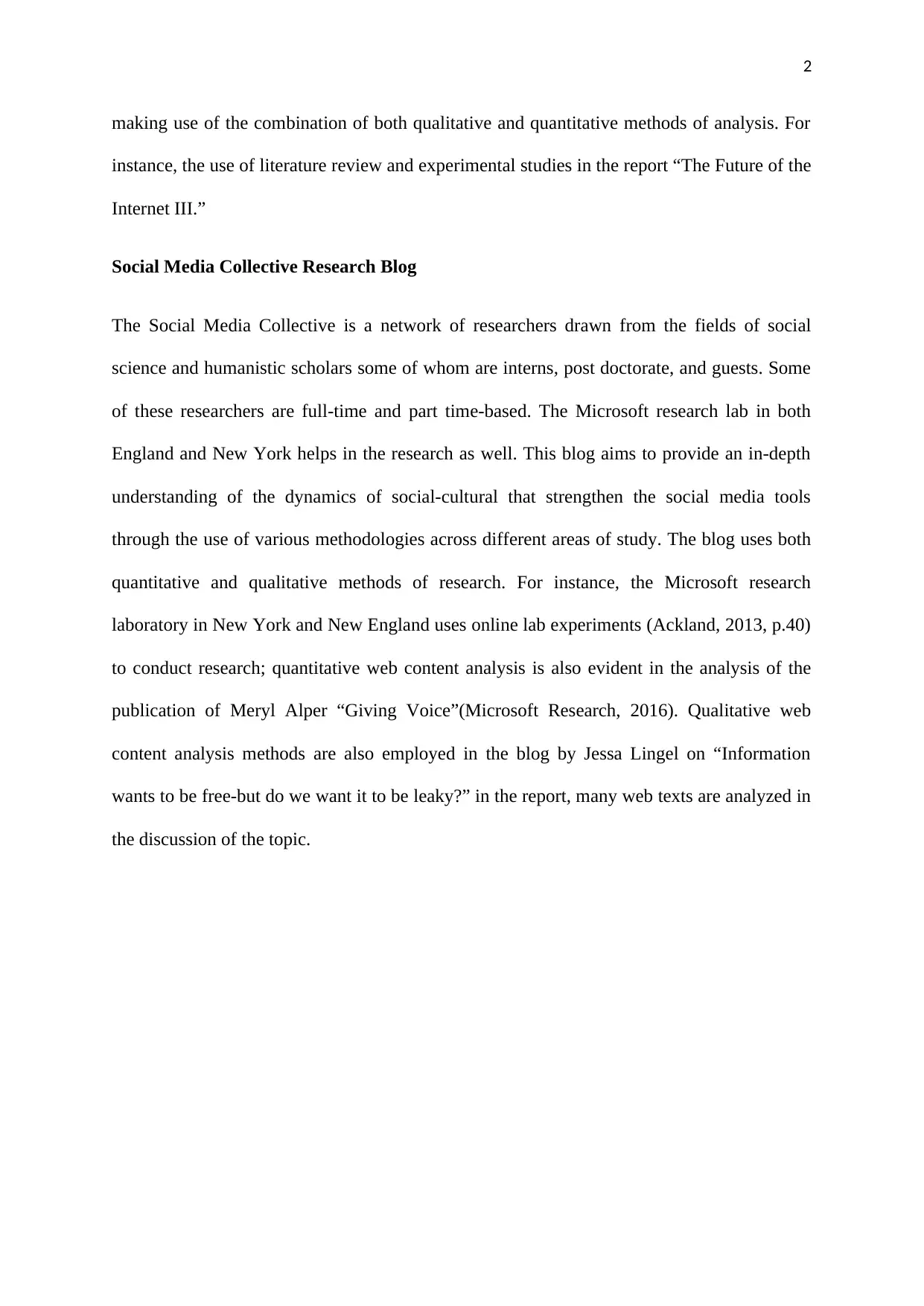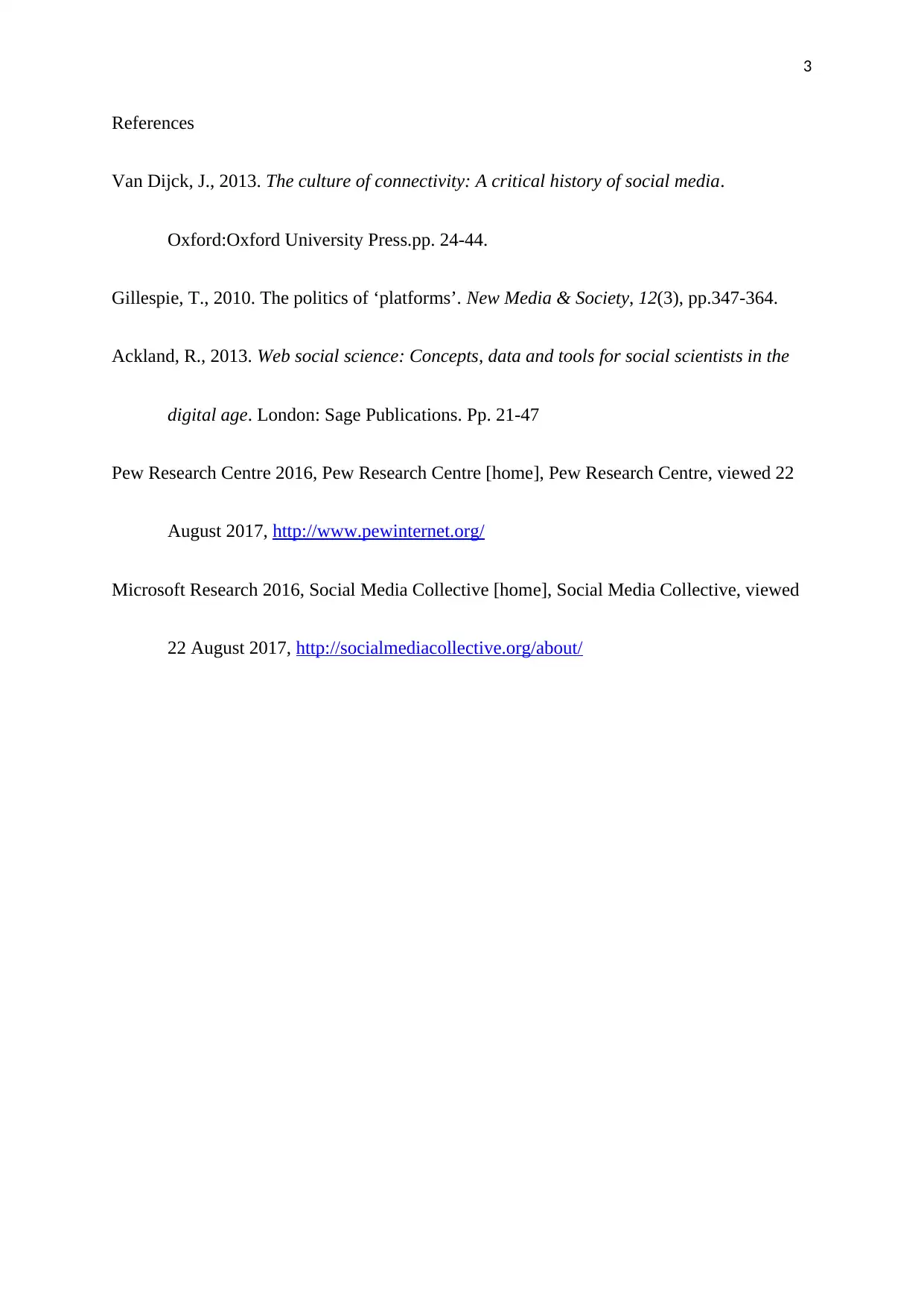Social Media Publics Research: Methods, Data and Analysis Report
VerifiedAdded on 2020/03/01
|4
|759
|202
Report
AI Summary
This report delves into the realm of researching social media platforms, practices, and publics, emphasizing the use of data mining and analysis techniques. It explores how social media platforms shape our understanding of "the social" and how users adopt it. The report examines the ethical and normative implications of social/media language, the development of an effective ethics of social life via media, and identifies gaps where alternative perspectives of "the social" can be established. The report highlights the methodologies of the Pew Research Centre, including sample surveys, quantitative web content analysis, and online natural experiments, as well as the research conducted by the Social Media Collective, which utilizes both quantitative and qualitative research methods, including online lab experiments and web content analysis. The report references key scholarly works to provide a comprehensive overview of the field.
1 out of 4










![[object Object]](/_next/static/media/star-bottom.7253800d.svg)